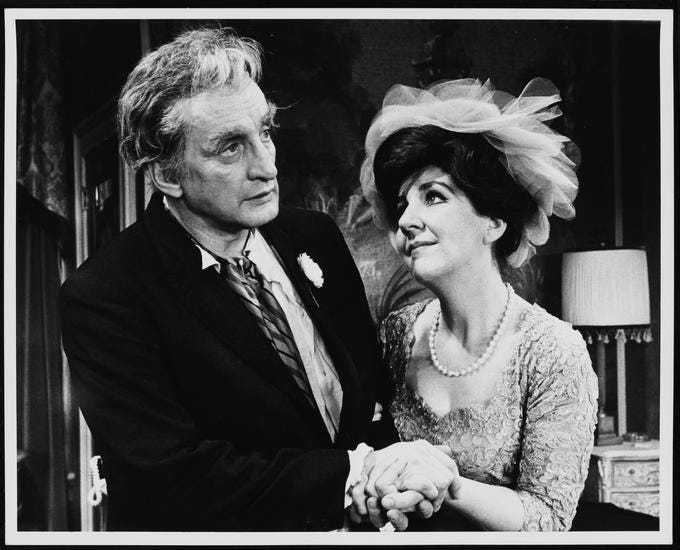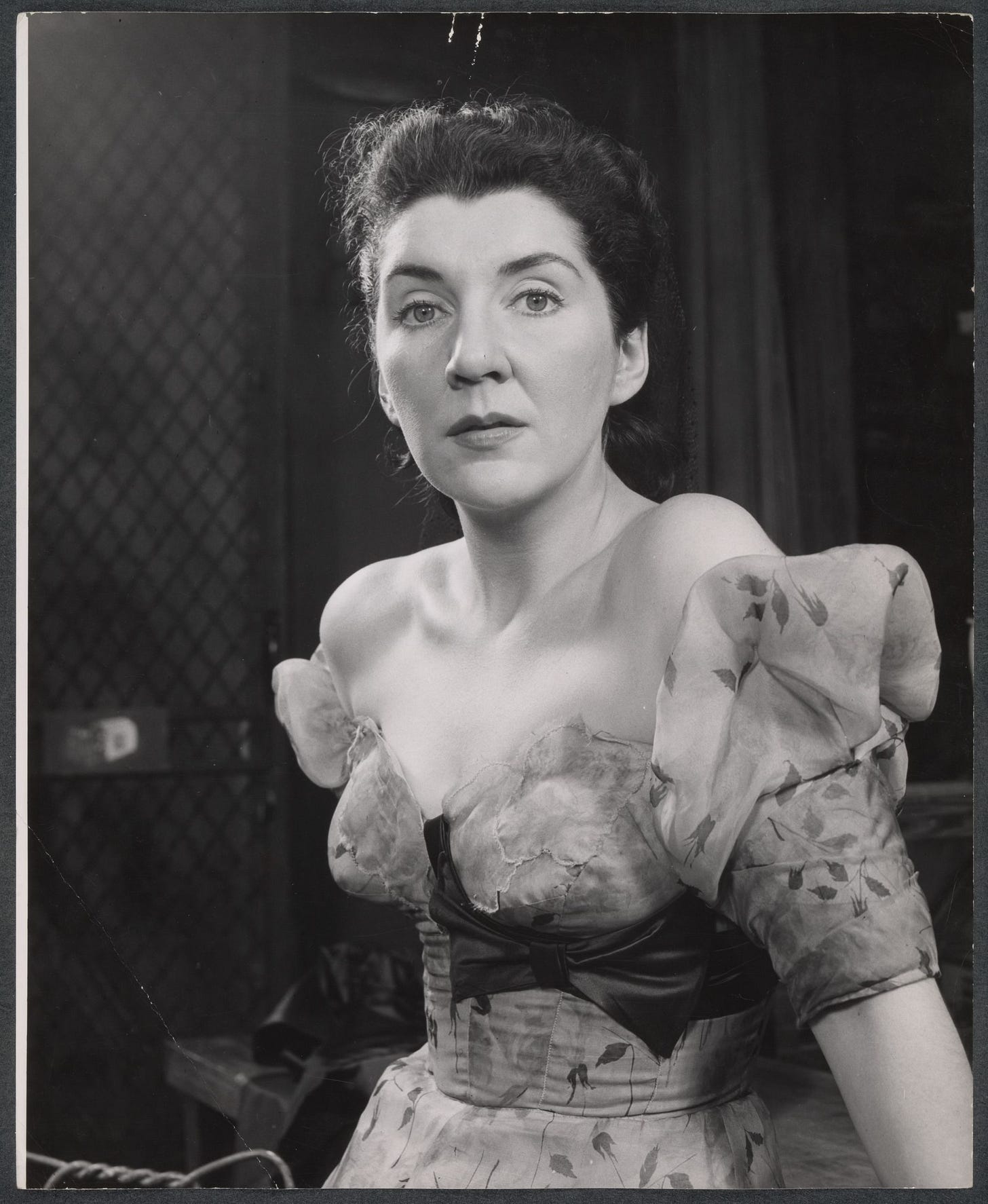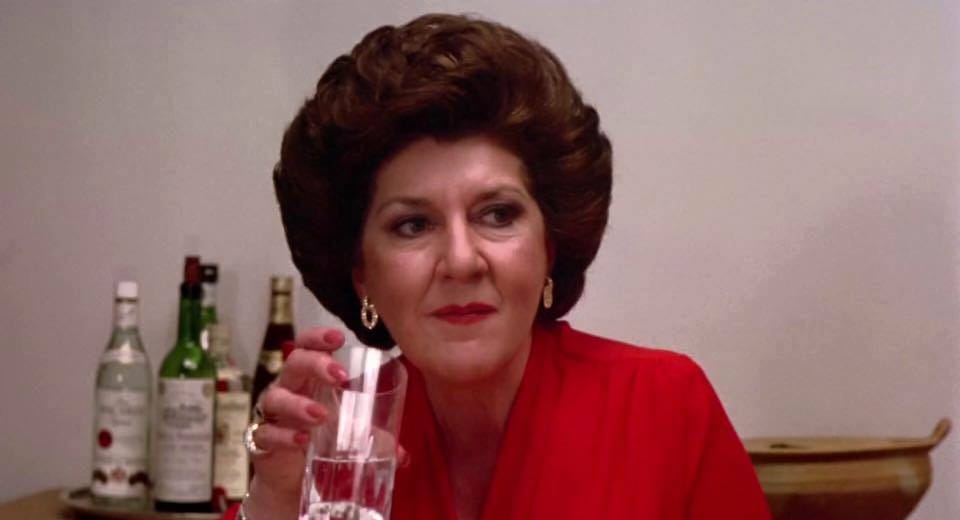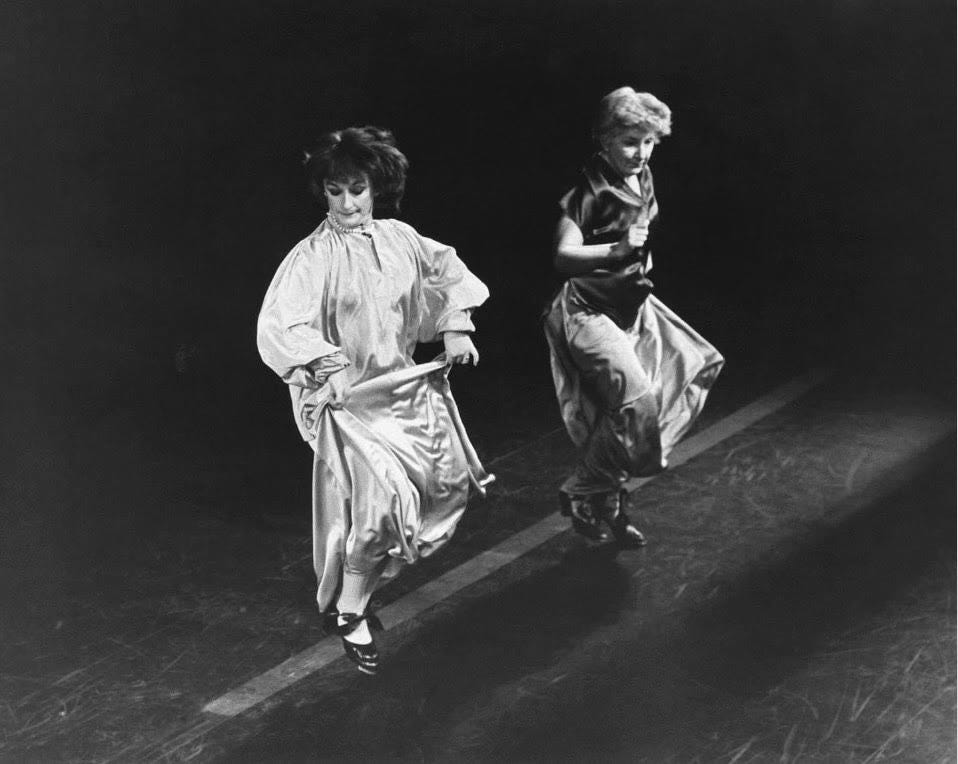"That broad better be able to act."
[a 100th birthday celebration]
“People looked at me on stage and said, ‘Jesus, that broad better be able to act.’”
—Maureen Stapleton
Content advisory: This essay includes a very, very, very, very naughty word. In fact, it centers on a very, very, very, very naughty word. So if you read beyond this next spacebreak, I don’t want to hear about it later.
OK, off we go.
Maureen Stapleton was born one hundred years ago today: that is, June 21, 1925. I remember first taking note of her on a family outing to see Airport (1970), intense stuff for a twelve-year-old what with desperate Van Heflin plotting to blow up a jetliner mid-flight to collect $225,000 on wife Maureen’s behalf via a hastily and suspiciously acquired life insurance policy, and though the film’s melodromantic1 sturm und drang swirling around Burt Lancaster, Jean Seberg, Dana Wynter, Dean Martin, Barbara Hale, et al., surely left preteen me bored, I was, I recall, mightily impressed with the crafty ruse to separate Van from his bomb-rigged attaché case that took in flight attendant Jackie Bisset cracking serial stowaway Miss Helen Hayes (in an irresistible performance that a friend once characterized as “a triumph of technique over material”) a good one right across the mouth, a ruse that might have succeeded but for the interference of perpetual wet blanket Whit Bissell and some libertarian jamoke in black-framed eyeglasses whining about “personal property.” We last see sad-eyed Maureen crossing the t’s on her eventual and much-deserved Oscar nomination for Best Supporting Actress by tearfully apologizing to the roughed-up survivors (“I’m sorry! . . . I’m so sorry! . . . He didn’t mean it!”), though it was her eventual and equally deserving co-nominee Miss Helen Hayes, her technique indeed a-triumphing, who took home the statuette.
It was never less than a treat to watch Maureen Stapleton—unpretentious, unfancy, almost preternaturally honest—in action: in Bye Bye Birdie, in which she plays Dick Van Dyke’s nagging mother (in real life she was all of five months and change older than he); in the TV semi-musical Queen of the Stardust Ballroom, which gave birth to the ill-advised Broadway full-tilt musical Ballroom;2 in red in Woody Allen’s Interiors (another Oscar nomination); in Reds as Emma Goldman (for which at last she won her Academy Award;3 “I would like to thank everyone I’ve ever met in my entire life,” she enthused). To my regret, I never saw her onstage.

But mostly I just want to tell a story that might, in the venerable tradition of show business stories, be true in full or in part, or it might not be true at all, but it’s, I think, a great story, which transcends, I suppose, factuality. (“I’ve never heard it debunked,” said the friend—a different friend from the Helen Hayes–summarizing4 friend above—who first told it to me. “Which I guess is my way of saying that I want it to be true.” Fair enough.)
It’s September 1991, and we (the imaginary, omniscient, omnipresent, mythology-enhancing we, that is) are attending the memorial service at the Martin Beck Theatre (now the Hirschfeld) for the supreme Colleen Dewhurst, who’d died the month before. It’s the famously/notoriously plainspoken Maureen’s turn to pay tribute to her friend, and she recounts the story of the night in April 1968 that she and Colleen, in the company of Colleen’s then husband, George C. Scott (two marriages to Colleen, two divorces from Colleen, two sons with Colleen, including the marvelous Campbell), are sharing a limo on the way to the Tony Awards—Maureen is nominated for Best Actress for Neil Simon’s Plaza Suite and Colleen is nominated for Best Actress for Eugene O’Neill’s More Stately Mansions—and how the actresses pledge each to thank the other, whichever one of them wins.
Alas, Maureen tells the assembled parties, which include (besides George C.; no hard feelings, I guess) Jason Robards, Edward Albee, Mike Nichols, and New York City’s Mayor David Dinkins, “That Australian cunt won!”
That Australian cunt in question, Zoe Caldwell, had indeed won,5 for The Prime of Miss Jean Brodie, and we are told that she, also in attendance at the Martin Beck that afternoon many years later, howled with laughter.6
This story (which I’ve found retold online in bits here and bobs there more or less as it was first told to me, so who knows, perhaps it really happened; the account of the memorial service I’ve just located in The New York Times’s archive somehow neglected to include it) comes with an additional doodad, as these sorts of stories often do, and though this doodad may be one bauble more than the story can bear, I’ll include it for the historical or ahistorical record. It’s so specific and specifically odd that it sounds plausible. (Or, like my friend, I simply want it to be true.)
It seems that in the aftermath of Maureen’s vivid testimony, the aforementioned Miss Helen Hayes turns in puzzlement to her pal Roddy McDowall, seated beside her, because she didn’t quite catch the punchline.
“What did she say?” Miss Hayes inquires.
Roddy ums and ers a bit; ever the gentleman, he’d rather not repeat the remark.
“No,” Miss Hayes insists, perhaps poking Roddy in the ribs (or so I’d like to imagine). “What did she say?”
“She said,” Roddy sheepishly confides, “‘That Australian cunt won.’”
Miss Hayes nods sagely and confirmingly. “Oh,” she says. “Zoe Caldwell.”
Maureen—again, so we are told—vowed never to attend another memorial service unless it was her own.
Happy one hundredth birthday, Maureen Stapleton.
Gratitude, as always, to everyone who subscribes to this series of mine, with extra gratitude to those of you who, simply because you choose to and can, support this series of mine financially. It makes a difference; it truly does.
Sallie says thank you too.
Post-publication addendum #1: I was dang proud of myself for this one, but once again I find that other people have coined my coinages before I’ve coined them.
Trust me, I saw it.
Post-publication addendum #2: I was also dang proud of that little red/Reds joke and was rather expecting to be acclaimed, if not canonized, for it. To date (the date being June 26, 2025), not one reader has so much as mentioned it. Oh well.
En dash alert!
The fourth nominee was Dorothy Tutin for Portrait of a Queen, the queen in question being Victoria.
Yet a third friend shared with me, also post-publication (making this post-publication addendum #3), this photo of Zoe and Maureen, improbably hoofing at a gala in honor of the fiftieth anniversary of the Neighborhood Playhouse. “My dancing reminds me of a dog who walked on his hind legs,” Maureen commented afterward. “It’s not that he did it well, it’s that he did it at all.”







The Helen Hayes follow-up is even more delightful!
I once heard a great line attributed to Ms. Stapleton who, in talking about the broad-grinned features of the lyricist Adolph Green, said, "He's the only man I'd rather go down on than kiss."
No idea of its factuality.
Ha -- good one!
As the newspaperman says at the end of John Ford's "The Man Who Shot Liberty Valence": "When the legend becomes fact, print the legend.”